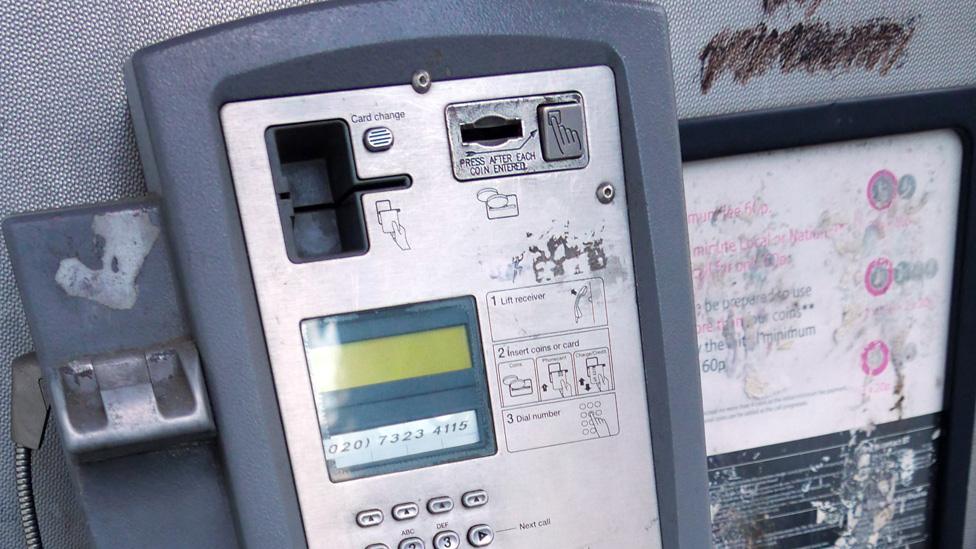BT figures show 3,000 calls a year from 'drug phone'
- Published
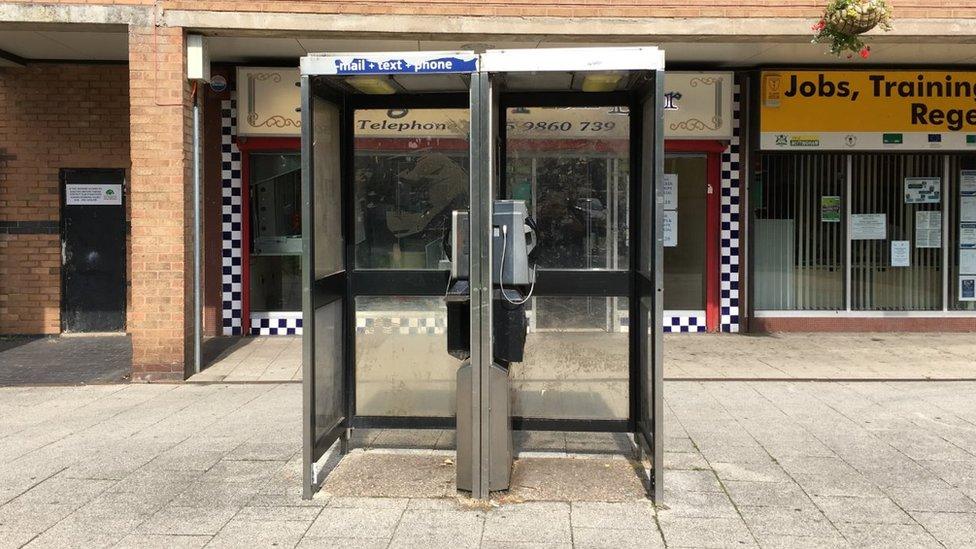
The phone on the right is used for more than 3,000 calls a year
Many of the 3,000 calls a year from the most heavily-used payphone in a county are thought to involve drug deals.
BT suggested the payphone in The Meadows area in Nottingham could be being used a lot by tourists but people nearby said it was known as "the drug phone".
Just one call per day is made from the average BT payphone nationally.
A community organisation wants "the drug phone" and one next to it removed but BT said it had no plans to do so.
"We have no plans to as this is a popular payphone used by many people," said a spokesman.
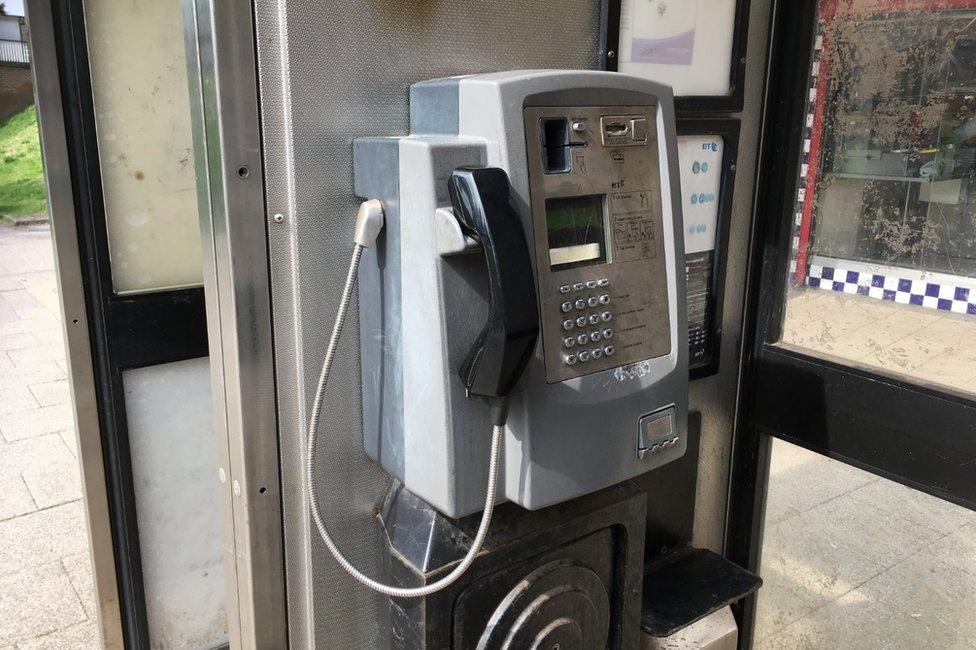
The phone is known locally as "the drug phone"
Chris Brummitt from the nearby Bridges Community Trust said she had never seen the phone box used for anything other than arranging drug deals.
"It's just a well known fact," she said.
"They are calling their drug dealers and arranging to get their drugs.
"I've worked there for 10 years now and it's always been the case. It's known as the drug phone."
'Hotline for dealers'
One shop worker said he had witnessed people using heroin inside the phone box itself.
"It's a hotline for drug dealers basically and it has been for years," he said.
"When you open the shop in the morning and see a bunch of dishevelled people queuing up to make a phone call they are not phoning the DSS.
"Everybody has tried to get it removed and nobody can. There was another one in The Meadows that was removed because of the same issues.
"I've seen people taking heroin in there when kids are coming home from school."

Phone facts
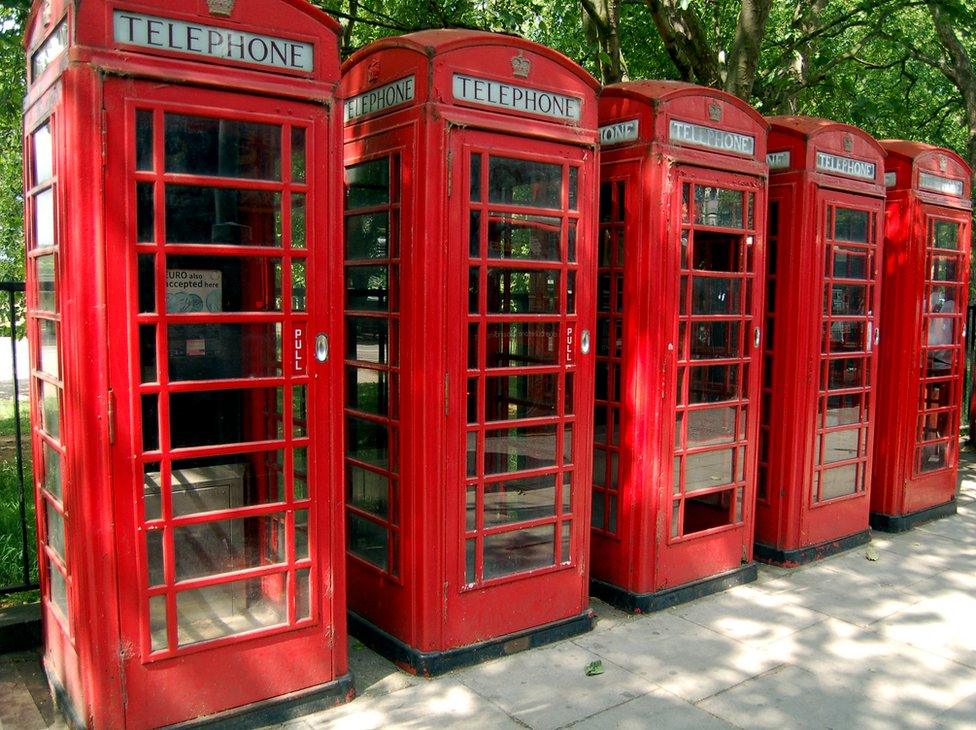
Just 3% of adults used a payphone in the past month
The number of calls made is falling by 21% each year and 70% of phone boxes lose money
There are more than 12,000 rural boxes where less than one call a month is made
One call per day is made from the average BT payphone nationally and in Nottinghamshire
At their peak in 2002 there were 92,000 BT payphones across the UK
Now there are 57,000 payphones in total, including 9,500 red phone boxes
There are 479 payphones in the whole of Nottinghamshire
Source: BT

The minimum call fee from BT payphones is 60p, meaning "the drug phone" is likely to be bringing in a revenue of at least £1,800 a year from calls. BT also makes revenue from adverts on phone boxes.
Mrs Brummitt claimed both phones were used for drug dealing but BT has not revealed how many calls are made from the second phone.
Neil Scoresby from BT said he was not sure why the phone - which is in a 1970s shopping precinct called the Bridgeway Centre - was being used more than 3,000 times a year.
"It could well be tourists," he said.
"We get a lot of calls made by tourists who don't have mobile phones that work on our networks.
"It could be for emergency service access or just simply because people often use a payphone when their mobile phones run down."
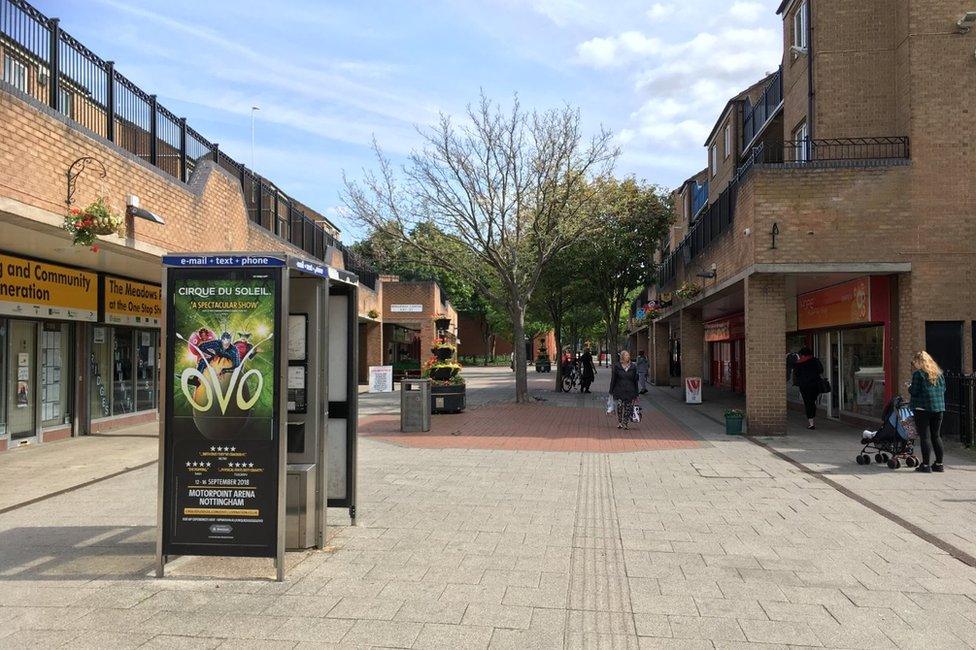
BT suggested the payphone - which is in a 1970s shopping precinct - could be popular with tourists
Mrs Brummitt did not agree with BT's explanation.
"I don't think we tend to see an awful lot of tourists in the Bridgeway Centre to be quite honest," she said.
She explained how one of her staff members was frightened when she arrived at work last week and found people congregated around the phone box.
"She felt so vulnerable and uncomfortable she wouldn't dare open the office until other people were around, because she was frightened they would try and break their way into the office behind her," said Mrs Brummitt.
The BT spokesman said: "We continue to maintain payphones which are popular with people, including the ones in Nottingham.
"We'd encourage anyone who spots any illegal activity to report this to the police."
Nottinghamshire Police said: "We are aware of incidents in the vicinity of a phone box near Bridgeway Centre and are taking steps to tackle them. High visibility patrols remain in the area."

Follow BBC East Midlands on Facebook, external, on Twitter, external, or on Instagram, external. Send your story ideas to eastmidsnews@bbc.co.uk, external.
- Published15 August 2017
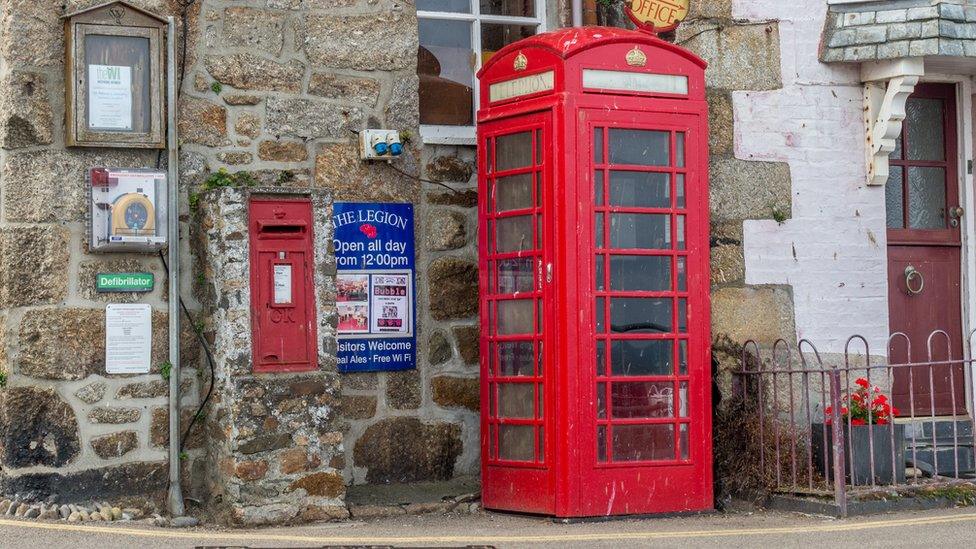
- Published15 June 2017

- Published1 January 2017
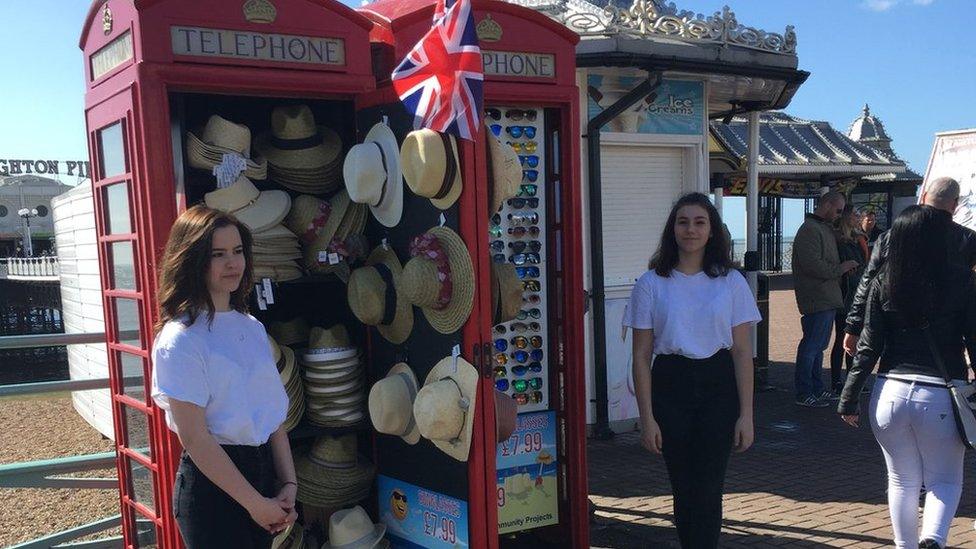
- Published16 February 2016
